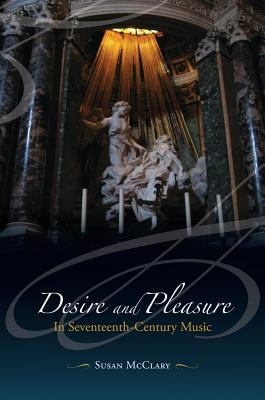
- We will send in 10–14 business days.
- Author: Susan McClary
- Publisher: University of California Press
- ISBN-10: 0520247345
- ISBN-13: 9780520247345
- Format: 15.5 x 22.9 x 3.3 cm, hardcover
- Language: English
- SAVE -10% with code: EXTRA
Reviews
Description
In this book, Susan McClary examines the mechanisms through which seventeenth-century musicians simulated extreme affective states--desire, divine rapture, and ecstatic pleasure. She demonstrates how every major genre of the period, from opera to religious music to instrumental pieces based on dances, was part of this striving for heightened passions by performers and listeners. While she analyzes the social and historical reasons for the high value placed on expressive intensity in both secular and sacred music, and she also links desire and pleasure to the many technical innovations of the period. McClary shows how musicians--whether working within the contexts of the Reformation or Counter-Reformation, Absolutists courts or commercial enterprises in Venice--were able to manipulate known procedures to produce radically new ways of experiencing time and the Self.
EXTRA 10 % discount with code: EXTRA
The promotion ends in 10d.23:11:00
The discount code is valid when purchasing from 10 €. Discounts do not stack.
- Author: Susan McClary
- Publisher: University of California Press
- ISBN-10: 0520247345
- ISBN-13: 9780520247345
- Format: 15.5 x 22.9 x 3.3 cm, hardcover
- Language: English English
In this book, Susan McClary examines the mechanisms through which seventeenth-century musicians simulated extreme affective states--desire, divine rapture, and ecstatic pleasure. She demonstrates how every major genre of the period, from opera to religious music to instrumental pieces based on dances, was part of this striving for heightened passions by performers and listeners. While she analyzes the social and historical reasons for the high value placed on expressive intensity in both secular and sacred music, and she also links desire and pleasure to the many technical innovations of the period. McClary shows how musicians--whether working within the contexts of the Reformation or Counter-Reformation, Absolutists courts or commercial enterprises in Venice--were able to manipulate known procedures to produce radically new ways of experiencing time and the Self.


Reviews